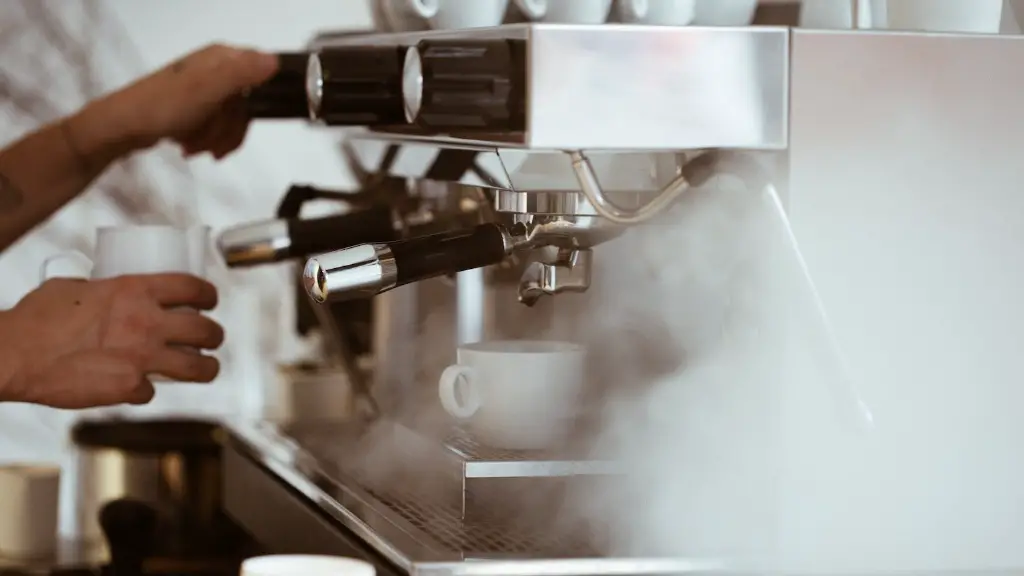Introduction
Intermittent fasting has increased in popularity over the last few years and it has been hailed as a great way to support a healthy lifestyle. There are various fasting protocols, however most involve significantly reducing the amount of meals you eat in a day, which can often be considered extreme. One of the key questions people have when considering intermittent fasting is whether it’s possible to continue consuming tea and coffee. In this article, we will be exploring this topic, examining the evidence and discussing what experts have to say about the effects of tea and coffee on intermittent fasting.
Background Information
Intermittent fasting is a dietary style that generally involves fasting for 8 to 16 hours a day and then feasting for the remainder of the time. This approach is designed to have beneficial effects on body composition, overall health and wellbeing. By reducing the frequency of meals and the amount of energy being taken in, intermittent fasting can help to promote weight loss and increase feelings of fullness.
There are a number of different intermittent fasting protocols that people follow and what is considered “fasting” will vary. Generally speaking, it is advised to avoid consuming any type of caloric beverage during a fasting period and this includes tea and coffee. While most people will know that tea and coffee are calorie-free and can be consumed during a fast, there is still some debate and uncertainty surrounding this topic.
Caffeine And Fasting
Caffeine is found in a variety of drinks, but the most common sources are tea and coffee. Caffeine is a stimulant that has been scientifically proven to have many beneficial effects on the body, such as increasing alertness, improving reaction time and aiding with physical performance. On the other hand, it can also cause negative effects, such as sleep deprivation, impaired concentration and irritability.
When it comes to intermittent fasting, the effects of caffeine are relevant as it is seen as a “calorie-free” beverage. This means that some people will drink tea and coffee while they are fasting, as they believe that they won’t be “breaking the fast” and their body won’t be using any energy stores during this time. However, there is some debate over whether this is the case.
Research On Tea And Coffee During Fasting
Research into the effects of consuming tea and coffee during fasting is limited, however one study demonstrated that caffeine consumption did not affect fat metabolism during a 24-hour fasting period. This suggests that consuming tea and coffee during a fast won’t have a negative effect on your body composition, however it is important to be aware of the potential side effects of caffeine, such as sleep deprivation and impaired concentration.
Expert Perspectives
Most experts agree that consuming tea and coffee during a fast is fine, however it is important to be mindful of the potential side effects. Some suggest that the caffeine could interfere with the body’s ability to access energy stores and others believe that it could disrupt the physiological response to fasting by stimulating the production of certain hormones. Ultimately, it is advised to experiment and see what works best for you.
Insights and Analysis
The research and expert opinion surrounding consuming tea and coffee during intermittent fasting is somewhat conflicting. While some experts suggest that it can be beneficial, others caution against it due to the potential impact on hormone production. It is always advised to consult with a doctor or nutrition professional beforehand and take their advice into consideration.
It is also important to be mindful of the fact that tea and coffee can contain additives that have a negative effect on your health, such as sugar and artificial sweeteners. The key is to ensure that you are consuming a good quality brew with minimal additives. If possible, it is also beneficial to limit your caffeine intake during the fasting hours to reduce the potential side effects.
Moderate Caffeine Intake
It is possible to drink tea and coffee while fasting, however it is important to ensure that you are drinking in moderation and not over consuming. Although caffeine can provide an energy boost, it is important to understand that too much can be detrimental and can cause problems with sleep and concentration.
It is advised to stick to one cup of tea or coffee in the morning, prior to the start of your fast, and then one or two cups during the feast window. This will ensure that you are not consuming too much but still getting the benefits of the caffeine.
Consider Other Beverages
If you are looking to reduce your caffeine intake but still want to consume a beverage during a fast, then there are a variety of other options that can be just as beneficial. For example, herbal teas without caffeine can be a great alternative and contain a range of beneficial compounds, such as polyphenols and flavonoids.
You could also opt for a sugar-free protein shake or a broth-based soup that contains minimal calories but still gives your body the nutrients it needs. Ensure that you are selecting a beverage that has minimal additives and is free from artificial sweeteners, as these can have a negative effect on your health.
Hydrating During A Fast
Although tea and coffee may be calorie-free, it is important to remember that they act as a diuretic and can cause excessive sweating. This means that they can also cause dehydration, which is not beneficial during a fast.
It is important to ensure that you are still hydrating your body during a fast and drinking plenty of water. Not only will this help to reduce the potential side effects of caffeine, but it will also ensure that your body stays hydrated and your organs are functioning optimally.
Summary
In conclusion, it is possible to drink tea and coffee while intermittent fasting, however it is important to ensure that you are doing so in moderation and not over consuming. It is also beneficial to select a quality beverage that has minimal additives and is free from artificial sweeteners. Additionally, it is recommended to stay hydrated during a fast and ensure that you are consuming plenty of water. Ultimately, it is advised to experiment and see what works best for you.


